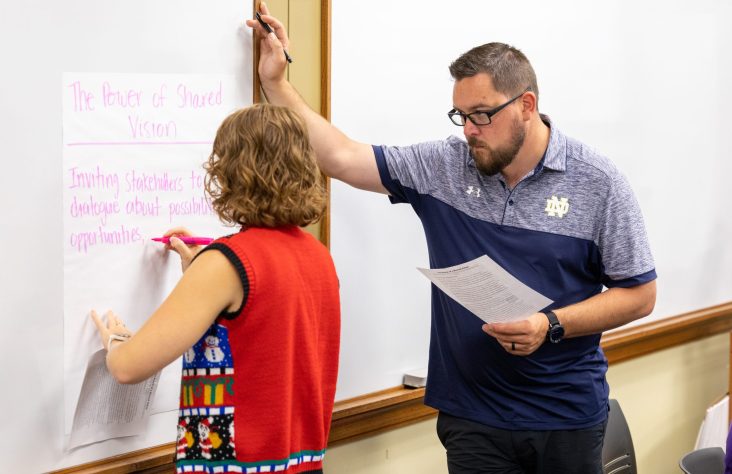April 18, 2017 // Perspective
Before you buy your child that cellphone
Any parent of a teen or preteen knows that since smartphones were introduced in 2007, social life for children has changed dramatically. Teen social life now takes place online far more than it does in the real world. Who hasn’t seen a group of teen girls together but not interacting with each other, their noses glued to their phones?
How this change affects teens’ social and moral development is still being studied, but as an experienced prosecutor of child exploitation crimes such as child pornography and sextortion, I know it has a very dark side. Left unsupervised, preteens and teens are subject to very real threats online. Child predators need no longer lurk at schools or playgrounds and risk being caught, but can easily assume any alluring online identity to “groom” their prey anonymously — usually girls age 12 to 15. Imagine a child predator virtually present in your child’s bedroom at 2 a.m. via cellphone: a chilling thought, but it does happen.
Until the child learns to drive and needs a cellphone for safety considerations, parents should try to withstand the pressure they might feel and the whining and pleading they might hear to provide one. Once you decide to give in, you must provide oversight. As President Reagan said, “Trust, but verify.”
I recommend a triad of methods to help children to avoid the real online dangers that exist: rules, monitoring and communication.
First, rules should be put in place before a cellphone is provided to a child, and their agreement to abide by them should be a precondition of that privilege. As a father of three teens, with three more on the way there, I know that rules are best written down to prevent arguing over what exactly the agreement was. A parent-child cellphone contract can be found here. This contract, which should be signed by the child and the parents, should be displayed prominently for quick reference. Make a copy, too: It will disappear.
For brevity’s sake I won’t go over all the contract’s provisions, but will emphasize a few.
First, the cellphone is yours, not theirs; you are providing it to them only if they follow the rules. They have no privacy on the cellphone (from you), and you may examine it at any time. The contract expressly states, up front, that you will install monitoring software on the cellphone. They will answer the cellphone when you call and will not disable the GPS tracking. They will install apps only with parental permission. And most importantly, the cellphone has a curfew and will be turned in to you no later than 9 p.m. on school nights and 10 p.m. on weekends, or whatever time you think is appropriate.
I can’t over stress the importance of the curfew. All sextortion cases I have handled have involved early morning calls between the predator and the child on an unsupervised cell phone. Additionally, as a practical matter, kids would rather use social media than sleep — and they end up sleeping in school instead. Violations of the rules are punished by progressive loss of the cellphone, as part of the contract.
Next is monitoring. Cellphones themselves have some limited parental controls, which aren’t sufficient. Several different monitoring apps are available for cellphones from vendors like Norton and ESET. Expect to pay for a good monitoring software that will provide web filtering and monitoring, the ability to monitor and block apps, the option to set time limits and location tracking, and an option of sending you a daily or weekly activity report. Some have the ability to turn the cellphone off remotely. In addition to this, you should check the cellphone every night to confirm that no unapproved apps have been installed, and to check call logs and messages.
Finally is the discussion about communication. Although parenting a teen can frequently seem adversarial, it’s important to talk to them about inappropriate cellphone usage, such as sexting, which is reaching epidemic proportions.
Inappropriate pictures can never be recovered. Plus, they need to know they can come to their parents if anything bad happens, not deal with it themselves, which most victims try to do. They need to know their parents love them and are always there to help.
John Maciejczyk is a federal prosecutor in the Northern District of Indiana and the District’s Project Safe Childhood coordinator. He is a graduate of the U.S. Naval Academy and Notre Dame Law School. He and his wife Christina, are the parents of six children and members of St. Pius X Parish, Granger.
Click here for the cell phone contract.
E-Book PDF: Open in New Window | Download
The best news. Delivered to your inbox.
Subscribe to our mailing list today.








